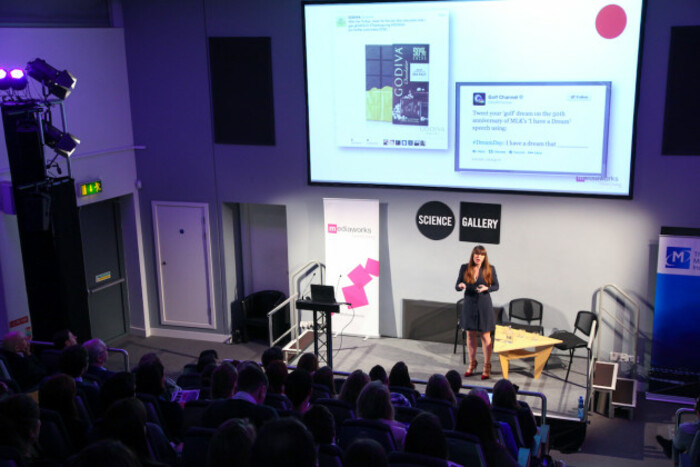Why firms should stop talking about themselves all the time online
This digital expert delivers a masterclass in building a ‘content strategy’.
SMALL BUSINESS OWNERS might think that ‘content’ is something for well-funded, large organisations – but SMEs are actually in a better position to embrace the idea of growing a customer base through well-written blog posts and timely tweets.
They are often much more agile than big brands. It’s easier for them to experiment with their communications strategy, and they really understand their local environment, customers and products.
If you’re a business owner and you communicate with customers online – through email, a blog or social media accounts – then you’ve already got a ‘content approach’ in place.
But if you decide the intent behind how you communicate with them, then you have a ‘content strategy’.
In other words, when you have a strategy in place, you’re not just haphazardly sending out messages. You’re thinking about the way you communicate with customers in order to provide them with valuable information.
Once you’ve earned a reputation for sharing useful information, your content strategy can help you build leads and hopefully increase sales.
‘Listen’ to customers
If you’re looking to improve how you communicate online, take an audit of your current content strategy.
For example, if you manage a social media account, what kind of messages have you been publishing? When have you been posting? What levels of engagement have you been getting?
If you notice that your social media channels are very one-sided – if all you do is talk about your business and how great it is – then your content isn’t of much use to your customers.

Imagine that you owned a brick-and-mortar store. If a customer walked in the door, you’d listen to their query and help them find what they’re looking for. You wouldn’t simply talk about how fantastic you are and ignore their problem.
The same goes for online content: listen to what your customers want and develop responses to those common themes.
Your first port of call when you’re coming up with a catalogue of things to tweet or write about is to think about questions that your customers ask time and time again.
When you’re on the phone to someone, what are some of the key themes that crop up in the conversation?
I would suggest looking on social media and seeing what your customers are saying, rather than copying another business’s content approach.
One of the most underutilised tools is ‘advanced search’ on Twitter. You can see in real-time what people are saying about a keyword, a brand or a product. I would often use that to see what’s topical in a client’s subject area.
Google has a free-to-use tool called ‘Trends’ that you can use to see what topics are being searched for in Ireland. You can look at trends over the last couple of months, and you can see the peaks and troughs of the public’s interest throughout the year.
When you understand the main discussions that people are engaged with, you can come up with a couple of themes. From those themes, you can develop some thoughts on what you might say and how you might explain an issue in a way that’s useful to customers.
Content calendar
Free-to-use tools are helpful when you’re planning a content calendar, which I’d strongly recommend.
I think there’s a lot of pressure, particularly with social media, to share loads and loads of stuff and that you have to be there every hour, every day. That’s actually not the case.
If you come up with a calendar of activity based on Google Trends data and what people are searching for on Twitter, then you’ll have a good idea of when best to post relevant information. A calendar will also help you build a content strategy into your normal workflow.
It’s not easy to come up with a really robust content strategy. It takes time. The biggest problem is that it’s often treated as an afterthought or a box-ticking exercise. If you put in the time, you’ll have a better chance of making a success of it.
 Mediaworks' Emer Lawn
Mediaworks' Emer Lawn
As you go on, week after week, month after month, you will start to see what’s working and what’s not. Your tone of voice might change over time, or you might know if you post on a particular day that you didn’t get much reaction.
One of the things that I love about the online space is that there’s no hiding from what people think. You get immediate feedback, so use their reaction to plan future posts.
Emer Lawn is director of digital at Mediaworks. This article was written in conversation with Conor McMahon as part of a series of masterclasses with some of Ireland’s most influential business people.
If you want to share your opinion, advice or story, email opinion@fora.ie.






